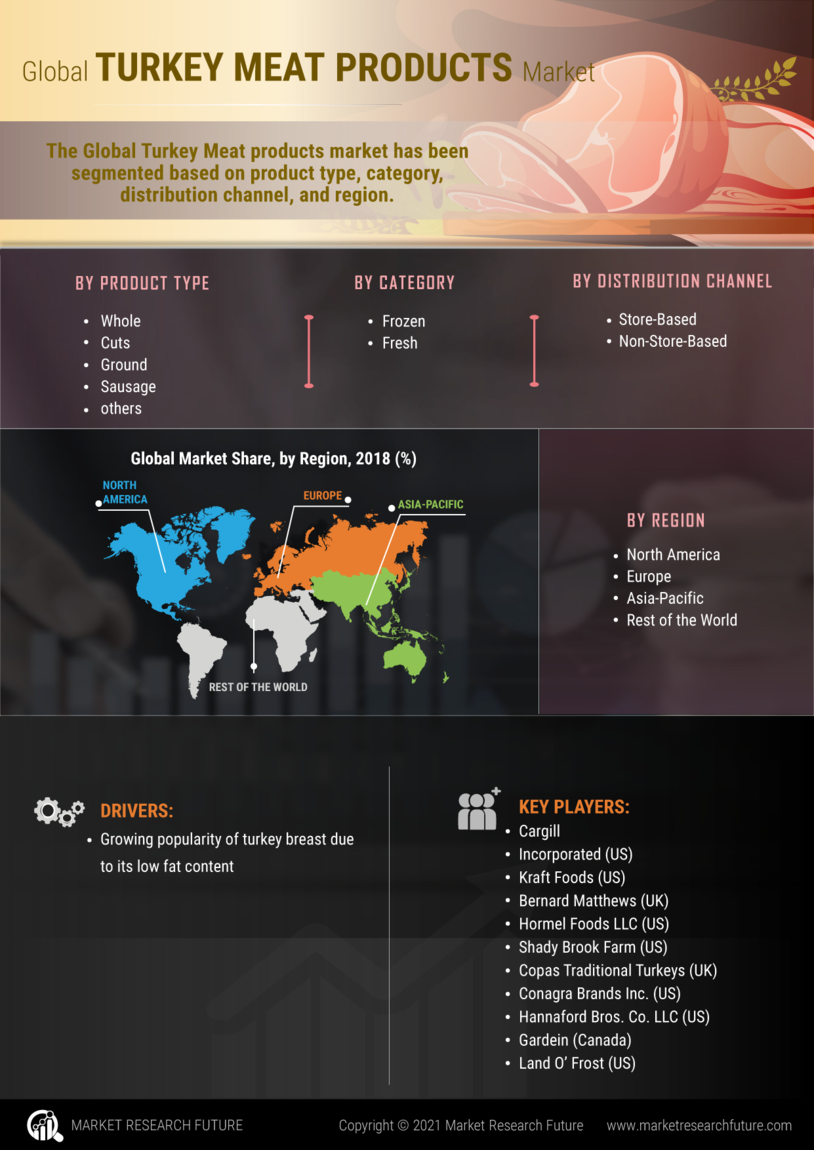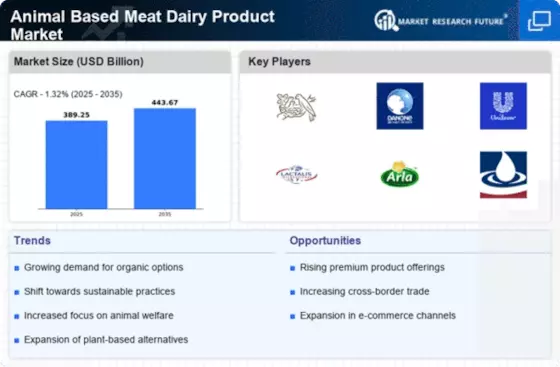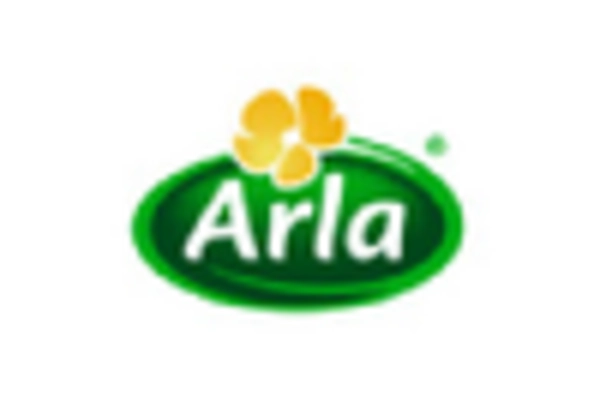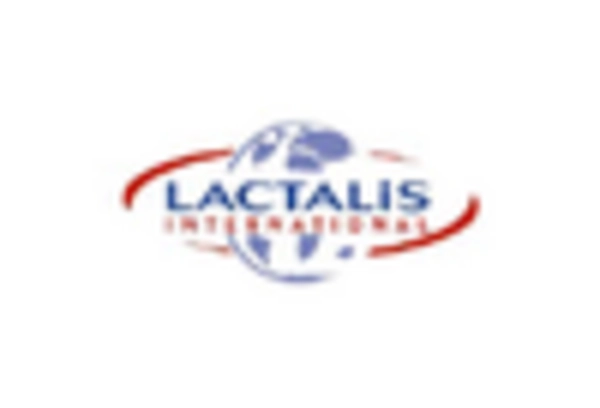Innovations in Food Technology
Innovations in food technology are significantly impacting the Europe Animal Based Meat Dairy Product Market Industry. Advances in processing techniques, preservation methods, and packaging solutions are enhancing product quality and shelf life. For instance, the introduction of vacuum packaging and modified atmosphere packaging has improved the freshness of meat and dairy products, thereby attracting consumers. Furthermore, technological advancements in meat alternatives and dairy substitutes are expanding the market landscape. The European food technology sector is projected to grow at a compound annual growth rate of 5% over the next five years, indicating a robust environment for innovation. This driver suggests that as technology continues to evolve, the Europe Animal Based Meat Dairy Product Market Industry will likely benefit from enhanced product offerings and consumer satisfaction.
Rising Demand for Protein-Rich Foods
The Europe Animal Based Meat Dairy Product Market Industry is experiencing a notable increase in demand for protein-rich foods. This trend is driven by a growing awareness of the importance of protein in diets, particularly among health-conscious consumers. According to recent data, the protein consumption in Europe has risen by approximately 10% over the past five years. This shift is influencing product offerings, with manufacturers focusing on high-protein meat and dairy products to cater to this demand. The increasing popularity of fitness and wellness trends further propels this driver, as consumers seek products that align with their health goals. Consequently, the Europe Animal Based Meat Dairy Product Market Industry is likely to see a sustained growth trajectory as it adapts to these evolving consumer preferences.
Regulatory Support for Animal Welfare
Regulatory support for animal welfare is becoming increasingly prominent within the Europe Animal Based Meat Dairy Product Market Industry. European Union policies emphasize humane treatment of livestock, which resonates with consumer values. The EU has implemented stringent regulations regarding animal husbandry practices, ensuring that meat and dairy products meet high welfare standards. This regulatory framework not only enhances consumer trust but also encourages producers to adopt ethical practices. As a result, products that comply with these standards are often perceived as premium offerings, allowing companies to command higher prices. The emphasis on animal welfare is likely to shape consumer purchasing decisions, thereby influencing the growth trajectory of the Europe Animal Based Meat Dairy Product Market Industry.
Sustainability and Environmental Concerns
Sustainability and environmental concerns are emerging as critical drivers within the Europe Animal Based Meat Dairy Product Market Industry. Consumers are becoming more aware of the environmental impact of meat and dairy production, leading to a demand for sustainable practices. The European market is witnessing a shift towards organic and sustainably sourced products, with sales of organic meat and dairy increasing by approximately 15% in the last year. This trend is prompting producers to adopt eco-friendly practices, such as reducing carbon footprints and implementing sustainable farming methods. As sustainability becomes a key purchasing criterion, the Europe Animal Based Meat Dairy Product Market Industry is likely to evolve, with companies that prioritize environmental responsibility gaining a competitive edge.
Cultural Preferences and Culinary Traditions
Cultural preferences and culinary traditions play a pivotal role in shaping the Europe Animal Based Meat Dairy Product Market Industry. Diverse culinary practices across European countries create a rich tapestry of meat and dairy consumption patterns. For example, Mediterranean countries exhibit a strong preference for dairy products like cheese and yogurt, while Northern European nations favor meat-based dishes. This cultural diversity drives product innovation, as companies strive to cater to regional tastes and preferences. Additionally, the resurgence of traditional recipes and artisanal products is gaining traction, further enriching the market landscape. As consumers increasingly seek authentic and culturally relevant food experiences, the Europe Animal Based Meat Dairy Product Market Industry is poised to benefit from this trend.
















